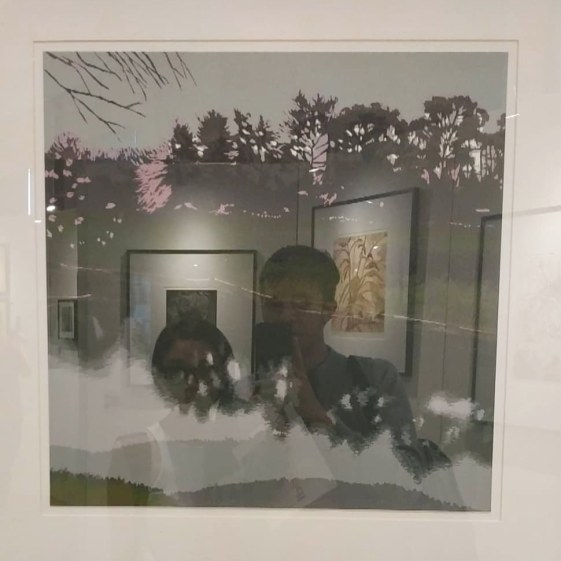
standing together
watching ourselves
through the reflection
at the forest of memories
on one fine fading dusk
May 4, 2020
SA

standing together
watching ourselves
through the reflection
at the forest of memories
on one fine fading dusk
May 4, 2020
SA
born
conceived
decided
handed down
all these call
with its role
girl, woman, mother, lady
something I have no idea on
something I never thought of
something that I never imagine
something,
that I never ask for
I could’ve born as a boy
I could’ve been a butterfly, a spider, a crab, a pebble
or a tree where a mommy bird build the nest on
yet I born
a woman
through this woman
and this woman
through this process
through this phase
it makes her
a mother
and oh,
it was wonder
yet
the only role that I want to play
the only person that I’m dying to be
no more
no other than
myself
January 26, 2018
SA
a glass wind chime moving and tinkling in rainy day
along with the cool wind, pale sky, grey cloud, and dim day light
SA
The other day I came across this funny video on my LINE timeline (I know, redundant) comparing Gordon Ramsay’s reactions towards children and adult participants of his cooking shows. They are . . . uhh . . . polar opposites; or, for the sake of simplicity, let’s just say his reactions to the children are the stark contrast from his usual favoring of profanity towards adult contestants.
But why is it so? How could one man be a total angel to a certain cherry-cheeked audience, while a hellish monster with swearing-issue in other occasions? Why can’t Mr. Ramsay be the same thoughtful and charming man he is when facing adults just like when he handles kids?
Most of us may justify this with the lines alongside of “Well, because they are adults, they can take it” or that “the kids are not prepared for such harsh criticism, adults are different.”
But is that truly the case? I mean, I totally agree that my 10 or 12 year old self would have cried and lost any aspirations in life if someone had repeatedly screamed “F*ck Off!” right at my face. However, does it really mean that as adults we are any less vulnerable at taking such jab straight to our face?
Are we all that tough? Is that what our adult life revolves around? Taking others “f*ck off” with full balls, grit, and guts, so that we may be granted the privilege to say “f*ck off” to others on different occasion when we’re on top? Is that it?
I think in a world where depression often slips unnoticed, we should all be reminded that even as adults we are never less vulnerable. All of us have the same desire and longing: to be acknowledged for our achievements, to be criticized in proportion, and to be picked up when we are down. We all want to be genuine and passionate in our aspiration, without having to continue referring to the standard of what’s realistic.
We all love to define the concept of adulthood as this final form of metamorphosis where our innocent adolescent self was the larva. But I’d rather see it as our cocoon; we are so busy pretending that the toughness of our shell changes the fact that behind the intricate cover, deep inside, we are still the same young little children.
JC
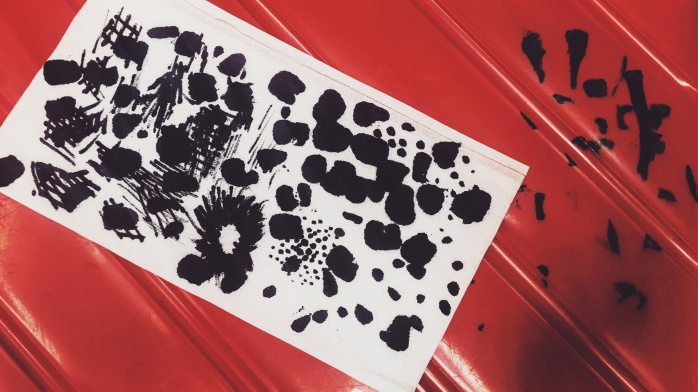
For me, nothing equals the temptation to hit the snooze button in the morning.
I hate waking up early in the morning, I really really really do. I honestly wish I can just submerge myself forever under those fluffy blankets and pillows while hugging my ducks. I keep reminiscing the time as a kid when I don’t have to worry too much about what time I should wake up. And here I am today, forcing myself to wake up early even on the weekend.
What’s funny is that most of my stress does not come from being up and sleepy by my alarm’s yell, but from failing to keep up with the plan. Nothing is a worse morning horror to me than finding myself up at 10 or 11 AM, realizing that I have to come up with a decent plan to cram ALL of my schedules—including breakfast, morning workout, early assignment submission (due to difference in time-zones), and whatever crap that follows after—in a smaller time window.
But perhaps there is something more to this matter than my heavy sigh in the bedroom. Perhaps it shares a lot in common with other activities we have to force ourselves to perform. That awkward meeting with a foreigner we barely know; that project on a new subject we have little expertise in; that speech on a boring topic we have to deliver to an audience; that jogging routine in the aftern . . . well pretty much every jogging, or exercising, or getting sweaty for that matter.
And whatever may lie on the other side—things we wish we could have done instead: sleeping, going on a trip, hanging out, or continuing to work on the same familiar albeit boring routines—all of them belong to this large category we name our Comfort Zone.
But there might be something quite not so comfortable in Comfort Zone. As in the barrier of safety and familiarity, it only makes sense that very little risk is involved. In fact, the only risk we may encounter is the risk of losing out on many opportunities and new excitements, accessible only through perpetual state of being challenged.
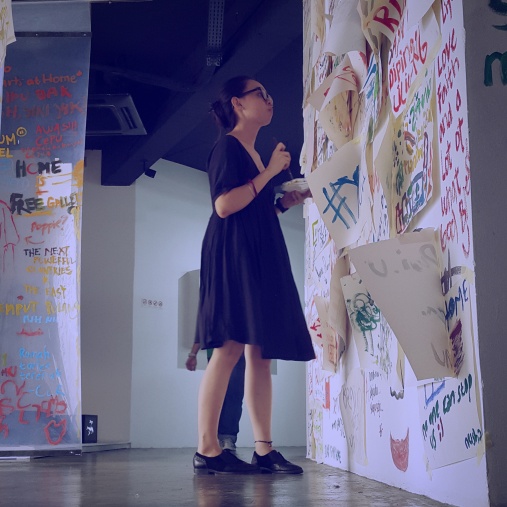
Perhaps today’s current state of discomfort is where we would find ourselves as an expert tomorrow.
I remember being asked to translate theses on law about two years ago by a certain Law Faculty. It honestly made me very nervous, and how could I not? I am a literature student, I barely knew anything about Law, I did not even enjoy Translation classes that much, and then some people came out of nowhere asking me to translate academic documents on . . . Law, of all things.
It might have seemed like a very sane, careful, and safe choice back then to just back out and say “sorry, I lack the expertise for this.” Instead, out of being a very stubborn idiot, I gave it a shot, desperately tried at least not to suck horribly the first time around, and within a year I was able to return quality work.
Funny thing is, that was the entry point of my current profession (and primary source of income) today. That one ballsy leap has enabled me to attain some references and a bagful of experience in the field.
My take-home from that experience is to acknowledge that perhaps the best opportunities in life might not come with a well-laid out diagram or instruction, heck it might not even come with privilege—perhaps we have to give up our 1 PM in the afternoon wake-up time, perhaps we’d risk putting our poor introverted soul on a stage for public speaking, perhaps it is bed and TV in exchange for that torture on a treadmill.
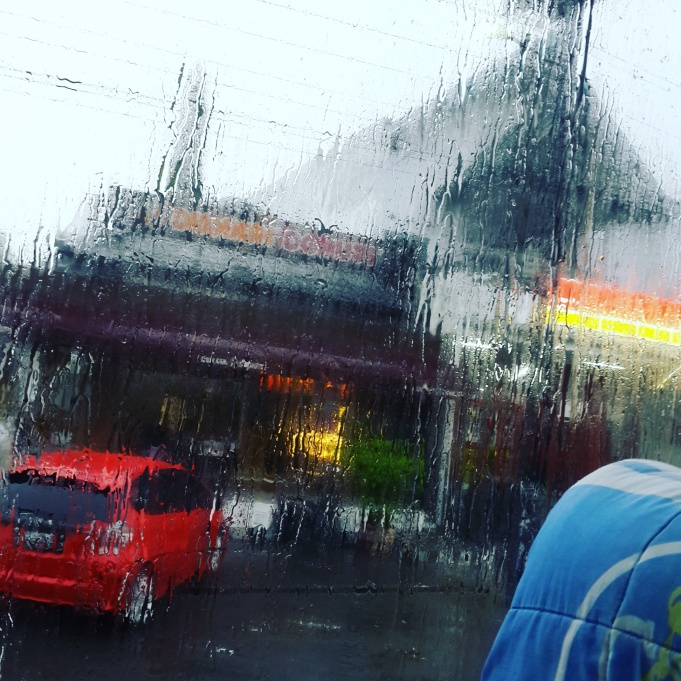
Venturing into the new and unknown can be very scary when staying where we are might seem all the more stable, more comfortable. But if we’re very comfortable in all aspects of life at the moment, it might be a tell-tale sign that something is wrong.
JC
“I love my job”
“I love my hobby”
I think the best luxury in my possession right now is to be able to say these two statements not on separate occasions. Not because I am successful in turning my hobby into a job, no.
After all, I have a wide range of hobbies, among others are reading, listening to my favorite music, playing Dota2, collecting yellow duck souvenirs, walking alone in late afternoon, or sitting quietly contemplating random stuffs—all of which have little to do with my day-to-day job as a translator.
What I mean is that I am in no time or spatial restriction on when to do which. I can work, then read a magazine, then work, then drink coffee, then work, then leave my laptops on the table and go for a walk, then go back to work.
It has allowed me to retain a wide perspective on this world. Not one confined to a single spot from a window of an office chair. Having no mode of transportation, I walk myself to different spots where I can sit, open my notebook, and call that place my office.
I move periodically, I always want to change the atmosphere, alter the setting, read different stuffs I could find stashed in the coffee-shop I visit, think about everything I see, every conversation I hear.
I don’t want to be two different persons, shifting between two different spheres. Wouldn’t it be nice to be able to work as a professional, while experiencing everything that is so emotional, so profound, so simple, so personal.
This has been a luxury I will not trade away for anything in this world. And for this, I am thankful.
JC

While Shakespeare has enlightened us on suiting its use to the interest of the hopeless romantic, some less internationally-recognized poets like Indonesia’s Chairil Anwar has demonstrated to his nation the vital importance of poetry in the struggle for independence. But whichever it may be—a social device or genuine form of expression, poetry has always existed to serve more than a single, uni-dimensional purpose.
In today’s era of the most technologically enlightened, however, the art of poetry seems to face an endangerment much fiercer than anything it has ever been in close encounter before: a competition from a ‘professional’ vision which regards anything to be of value only as long as they possess practical qualities.
Findings from multiple surveys hint on an all-time-low interest in poetry. “Poetry is dead,” they say, and its murderer most probably would be the common sense that listing “I read Hamilton and Dylan Thomas for breakfast” adds no value to a resume. But does this supremely hold true? Can all of us really function solely on numerical efficiency without the reassurance that we are, after all, serving a more profound, meaningful cause?
It can’t possibly be true. Otherwise, every advertisement in our industry would simply show the technical specs for every fancy new phone, or list the horsepower and torque of each new car. Instead, what remains central in advertisement is convincing us that the advertised product is laced with qualities of our desire—be it happiness, trust, sympathy, assurance, company, or love. Thus, the success of advertisement—much like everything else in our industrial world—hinges not upon the conveying of its value, but rather by convincing us that it is a vessel of profoundness and meaning.
But if by possessing more, we only crave for more, then the ideal sold to us by our industry through advertisement might not be so true after all. Otherwise, we’d have to agree that we have an insatiable thirst for profoundness and meaning. What is more likely is that profoundness and meaning reside somewhere else; perhaps within the genre we had dismissed as obsolete for lacking practicality; perhaps our next step forward is to look back—in the removed dusty covers of books of poetry.
It may take a detour to our quest for meaning. It might seem nothing less than a time-walk to an age of antiquity. And there may lie the biggest problem with poetry, or so we are led to believe, that it conforms not to our futuristic interest, the so-called modern vision.
It will still hold true that the compilation of sophisticated diction may still not add any relevant entry to our CV. However, in the events where that very CV is successful in bringing us a new office and new suit to wear, poetry may complement us with the profoundness we need to carry on.
Because poetry, and art in general, does nothing less than equipping us with passion. And while we may run out of professional work ethics after exhausting series of chases with deadlines, I honestly never think we would ever find ourselves in short supply for passion of being human.
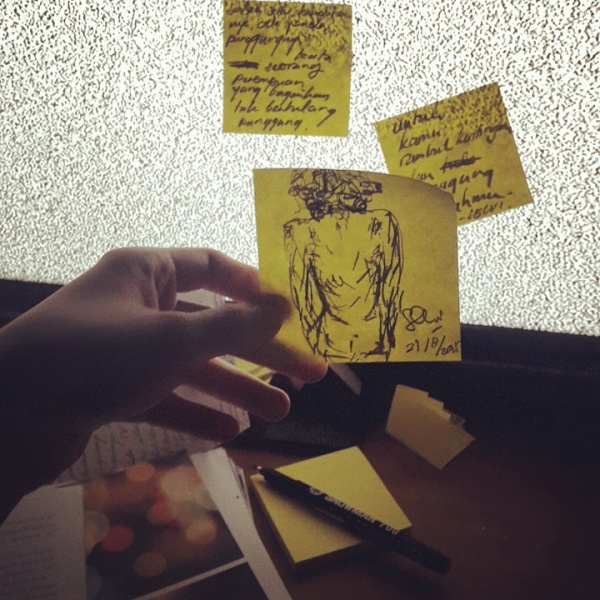
JC
I am among those who come rather late to the trend of believing in fate, destiny, or the universe for that matter. And even in my newly adopted revelation of how the uncontrollable force of life can be a game-changer, I still wouldn’t go as far as dismissing the importance of making our own choice.
There has to be a balance, a simultaneous interaction—as when Emerson (lemme be a bit fancy by citing some famous name) speaks of Fate and Power, he actually addresses the same importance of the interplay between vitality and futility.
But I’ve known about this force, power, or vitality for quite a long time. It is futility, this unaccountable force we all refer to as “fate” that I have only come across very recently.
And it all has to do with a number.
So after meeting Selvi for the first time in a poem-reading competition, I paid it no mind. I had no idea we would be in a relationship about a year after that initial meeting. I didn’t seek her out, she didn’t seek me out. Neither of us tried to initiate the next meeting.
It was all . . . rather cliche. I lived in a boarding house not too far from the complex of my campus. And at one fateful night I decided to go out for dinner. And I met her, right in front of the campus gate, she was on her way home. Strangely, I still remembered her. Perhaps because of the deep impression she had imparted me during the competition. So I called out to her, she still remembered me as well, I learned that she had just became a student in my own campus, a freshman. And the rest, from then on, as they said, is history.
But it is important to note that: if I hadn’t met her that night, I wouldn’t have learned that she was already a student in my own campus; if I had decided to go out earlier that night, or later, I wouldn’t have met her as well; or if I was too busy texting on my phone while walking down the street, which I do quite often from time to time, I wouldn’t have noticed her presence across the street. The margin of error of our meeting on that night was really big. It was far more likely that we didn’t meet at all.
It didn’t take long after that meeting before we officially became couple. During the early phase of our relationship we often visited this small coffee-shop inside this ESCO Restaurant. She really loved this coffee-shop. But since I was not that much of a coffee person, my opinion of it was only so-so at that time.
But we eventually became attached to the place, it just kinda grew on us. When I started to really take freelance-translation job seriously, I found myself working there most of the time. I loved the arrangement of the table, the dim lighting, the quiet atmosphere. I also loved the fact that the coffee-shop always updates its bookshelf, which is filled with editions of Monocle, Kinfolk, or other local magazines.
It was also in this cafe that the idea of starting a blog came to me. I just thought that, this place somehow allowed to me put my vision to practice: that working and spending quality time may as well happen in one spot. So we worked on the idea, I wrote the content while Selvi designed everything else, and that was how this blog came to being.
When Selvi had to go back to Jakarta, I still visit the coffee-shop. At this point the baristas and the owner already started teasing me on the fact that I have to commit to a long distance relationship. No really, teasing would be too soft an expression, bullying me for having no companion would be more accurate. Somehow their way of teasing me has helped me to cope with the fact that I miss Selvi so much. The place just become much more friendly.
One day after another long day of work, while stationing myself by the entrance of the cafe so to rest my mind, Selvi asked me via text “do you remember what day is it? We are officially 3 months being couple today.”
Now I have really been bad at remembering dates, like my mother or my father’s birthday. I always seem to forget. It’s like I always miss the point of why dates are so special to most people. But that night I somehow learned a lesson about it. As I minimized the messenger app, I looked up at the date and realized it was the twenty-seventh of that month—the date we became a couple, 27.
I raised my head and peered through the glass into the interior of the coffee-shop. Then, as if getting a nice twist and surprise for all of the moments I’ve spent there. I read what’s imprinted on the glass, for the hundredth time, though it was the first time it actually made sense. . . I gazed smiling at the name of that coffee-shop.
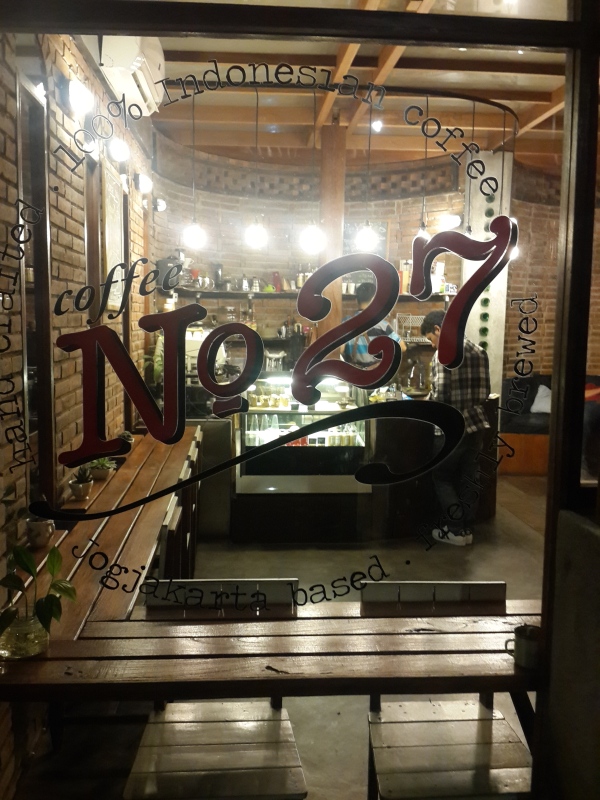
JC
There is perhaps, nothing more frustrating than being unable to deliver a piece-of-mind in a very precise manner. And I don’t merely speak of telling someone else a story, or an information, which they may have hard times in understanding the context. I believe what is even more difficult is to communicate an understanding, a comprehension, a vision.
It is often a desperate pursuit, at the end of the day, you are only successful in transferring to someone else a fragment of your thought. And it may lead to misunderstanding, or backlash, or downright rejection where the partiality of their integration of your thought is to blame.
And this happens all the time, often not because they are intellectually incapable, or less engaging emotionally, but because there is this un-bridgable gap. Normally communication is only capable of facilitating the passing of simpler ideas, of concrete concepts, but when it comes to a full and intact biased perspective, it requires a certain leap, a jump, a process in which some of the details would unfortunately be left behind unable to find itself reaching the receiving end.
Just like those times where saying “I love you” is just not enough anymore. When the word “love” is too simplistic to fully explain what we really experience. Or when you don’t have the right word to tell someone who is mad at you that you didn’t mean it that way.
I have always lamented at how apparently no one really understand how I think—how the world appears from my perspective. But after meeting Selvi I started to realize, it is not really because I haven’t found someone whom I can share it with, but because of our own limitation to really experience the bias of others, despite she or he being the closest person to us.
I often tell her that I see colors from time to time, that in my rapid but very random and decentralized mental processing, it’s like I can see a pattern, so abstract I cannot reproduce into something else more concrete. The best I can convert them is into words. And because of that I have always envy her . . . And I think sometimes love can originate from envy; that she has always been good at artistic reproduction: into colors, into drawings, into songs, into photographs.
Me? I can only put them into words. I may call myself a poet, but sometimes poetry is my half-ass excuse at being unable to replicate the exact manure of my mind. No praises for my writings can ever console me enough for my failure of creating a feasible or satisfying reproduction. And where transcendence and metaphysical consolations have failed, there appears to be barren wilderness where remaining solutions are scarce.
But the true journey of relationship is arriving at the realization that not every understanding can be mutually shared. Some are of unique encoding, exclusive to a person, and not even your partner can quite grasp your vast methodical imaginations or your excessive sentimentality.
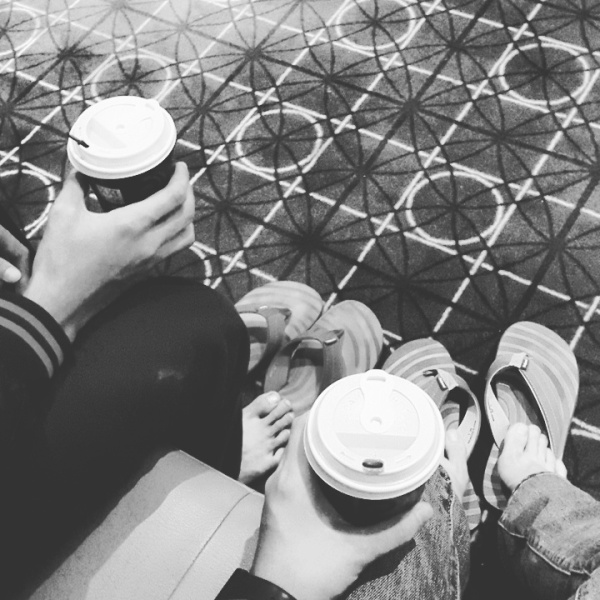
Still . . . why would it matter? The lament on my face, the worries in her expression are more than enough happy signs. That each of us care for each other, that we are desperately sorry for ourselves and all our limitations, for being unable to dive into the depth of thought that replicates the mind of our lovers.
As long as we try our best to put on our virtual glasses to experience the life of our dearest. That’s it, while we can’t really live the thought of their head, our appreciation can find its farthest extent in trying to put ourselves in others’ shoes. In their condition.
Because in every polite plead to request an understanding, in every desperate cry of lovers who want to be understood, for strangers who want to be acknowledged, for children who want to be noticed by the parents, for greenhorns yearning for recognition, we are all holding the same thing by the tip of our tongues:
“Please simulate mine, would you?”
That is, the desire for the most basic need of our being: understanding.
JC


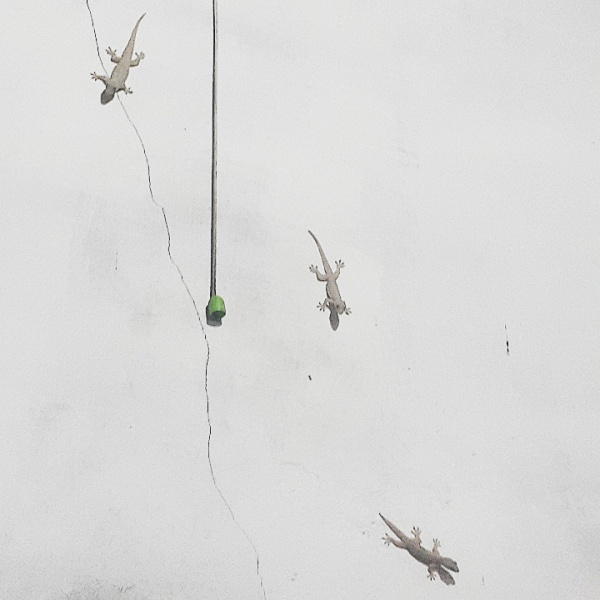
To simply be pure and white again, to simply begin again.
SA
(While in the process of finding the suitable title for this post I asked Jeremy for suggestion. “Selvitiniwinibitimumumuhaniswiti ?” that was his answer.)
.